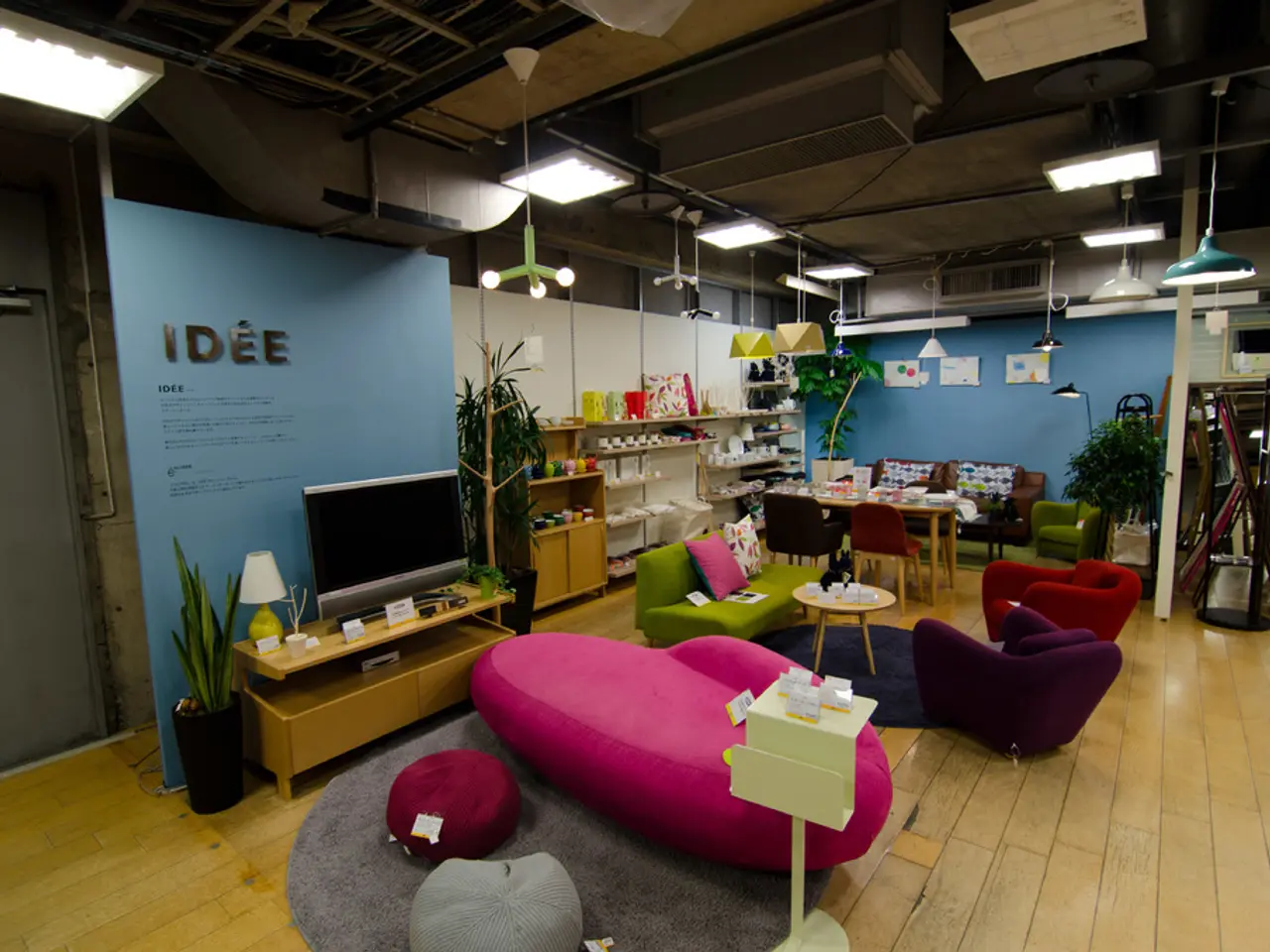Expense Analysis of Home Automation in 2025
=====================================================
In the rapidly evolving world of technology, smart homes are becoming increasingly popular. These connected living spaces offer a range of benefits, from convenience to energy savings.
Cost of a Smart Home
The cost of a smart home can vary significantly, with the average ranging from about £1,500 to £10,000 or more. Basic automation systems start around £1,500, while fully integrated, whole-house solutions can exceed £10,000. Individual devices such as smart plugs cost as little as £6–£25, while premium components like whole-house audio or advanced climate control zones can reach several thousand pounds [1][3].
Impact on Property Value
Smart home features significantly enhance a home's market appeal and resale value. According to a 2024 report by Samsung, 79% of potential homebuyers want smart homes, with many willing to pay around 7.7% more for homes equipped with smart technology [2]. Similarly, the U.S. National Association of Realtors (NAR) reports that smart home features can increase resale value by up to 5% and influence the buying decisions of about 11% of homebuyers [2]. Another source notes that 29% of buyers would pay an average premium of £2,600 extra for a fully equipped smart home [4].
Long-Term Benefits
Beyond direct value increases, smart home technology future-proofs properties by enabling easy integration and upgrades as technologies evolve. This improves home system longevity through preventative maintenance and energy monitoring, which also appeals to buyers [4]. In essence, smart home investments are comparable to other valuable home upgrades like kitchen remodels or HVAC system replacements.
The Future of Smart Homes
The global smart home market value reached an estimated £149.43 billion in 2025, with smart garage door technology leading the charge. The forecast predicts it will reach approximately £630 billion by 2032, a 321% increase in less than a decade [1]. The global number of smart homes is forecasted to reach over 785 million in 2028, up from 191.38 million in 2019, representing a 310% increase in just under a decade [1].
As time passes, having a smart home could become as common as owning a smartphone or driving a car. The expansion of the Internet of Things (IoT) is contributing to general acceptance and lowering entry barriers as older releases become more affordable and secondhand options become more common.
Smart Home Devices and Their Benefits
Smart lighting, such as IoT bulbs, use motion sensors, timers, or app input, giving users maximum control. Smart thermostats, typically ranging from £100 to £350, can save up to £250 in the first year, providing a good return on investment. Smart speakers, televisions, projectors, gaming consoles, and outdoor IoT devices offer convenience and granular control, although their return on investment may not be as great. Smart alarm clocks have customizable settings and can tell stories or play relaxing sounds to help people fall asleep.
Considerations for Smart Home Investment
When investing in a smart home, it's essential to consider the upkeep costs, such as changing batteries and replacing devices when manufacturers stop supporting them. A contingency fund, holding around 10% to 20% of the budget, can accommodate unexpected expenses during smart home projects. While a DIY approach to installation can save money, professional installation may be necessary for more complex installations.
In conclusion, while smart home setups require an initial investment, they often translate to higher property values, improved buyer interest, and long-term benefits such as energy efficiency and system longevity. As technology continues to advance, smart homes are poised to become an integral part of modern living.
References: 1. Statista 2. Samsung 3. Consumer Reports 4. Realtor.com
- To maximize the potential return on investment, one might consider allocating part of their personal-finance budget towards the installation of smart home devices, as these systems are not only appreciated by potential buyers but also offer energy savings in the lifestyle realm.
- The rise of smart homes in the future will likely spur growth in the home-and-garden sector, as the increasing popularity of these connected living spaces could lead to increased demand for smart home devices and associated technologies.






